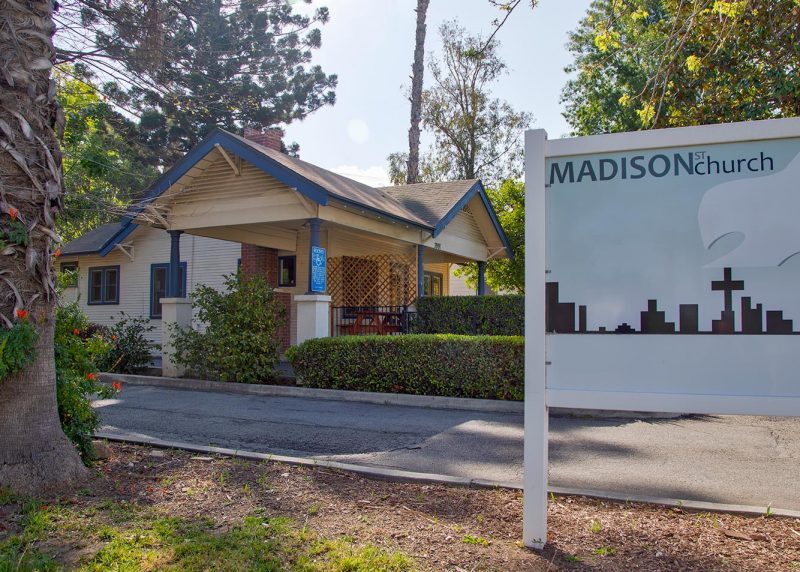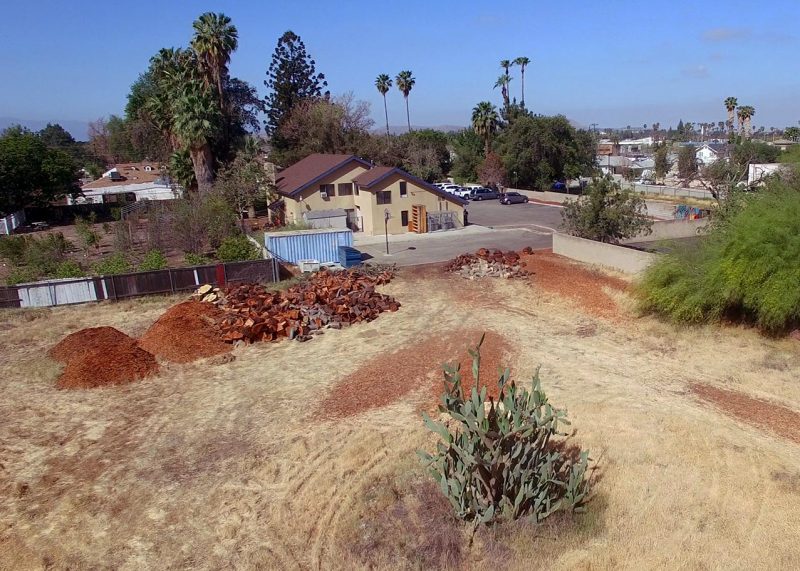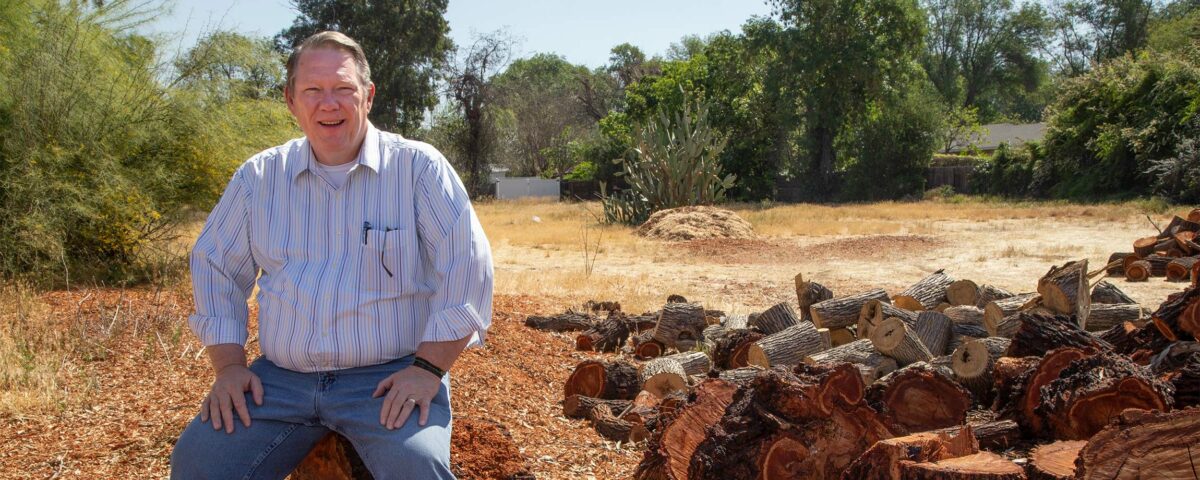Pastor Jeff Wright and Madison Street Church, a BIC U.S. congregation in Riverside, California, have an empty lot behind their church and an audacious dream — end chronic homelessness in their city.
Such a dream is possible because the government and churches are partnering together. For citywide, churches have caught Christ’s vision to feed the hungry, clothe those in need, and invite the stranger in (Matthew 25:35).
From Strip Mall to Housing for the Homeless
Behind Madison Street Church sits a vacant plot of land, overrun with cacti. Destined to become a strip mall, it couldn’t be developed due to legal issues.
And Madison Street Church envisions a radical alternative: a space to provide permanent housing and services for homeless families.
Their vision puts Madison Street at the forefront of a citywide plan to eliminate chronic homelessness.1 However, most governments would be skeptical of Madison Street’s field of dreams.
But due to Riverside’s recent history, the government has faith in church initiatives.
Churches Standing in the Gap
Around 15 years ago, the Riverside government failed.
Their homeless shelters were woefully inadequate to meet the needs of a growing homeless population.
And Path of Life Church — another church of just 50 members — decided to respond.
“There’s proof that there’s a Holy Spirit,” said Jeff. “The city was able to offload an entire homeless shelter system onto this small church, with half of what they were spending before.”
Homelessness decreased dramatically: from about 1,400 homeless people in Riverside in 2005 to fewer than 400 in 2017.2
For, citywide, churches came together — rallying behind this small church — to champion the plight of the homeless.
And the city took notice. They began to see that when churches come together, good things happen.
A Church Working on Behalf of the City

Enter Madison Street Church.
Jeff calls them an advocacy church. The congregation includes public servants and influential figures: government, nonprofit, and business leaders.
Dedicated to Riverside, the church members own Riverside’s issues, celebrate its victories. For example, a Madison Street member spearheaded eliminating veteran homelessness in Riverside.
Rusty Bailey also happens to be Riverside’s mayor. A West Point graduate, he was committed to caring for warriors, initiating a Housing First program3 to shelter them.
Today no more veterans are on the streets. The mayor now pledges to end chronic homelessness in Riverside by 2025. Standing with him are Riverside’s churches and nonprofits.
“With the collective support of Riverside churches, nonprofits, and government agencies, we can find solutions to end homelessness in Riverside,” said Mayor Rusty Bailey. “It’s been awe-inspiring to see churches following Christ’s call to love our neighbors without homes.”
But in California — where land is scarce and outrageously priced — the plan hit a snag. They need affordable space to house homeless families.
Thus, the field of dreams behind Madison Street offers a tantalizing prospect: free acres of land.
(Note: Madison Street doesn’t own the plot; Los Angeles real estate developers do. But Jeff is working to convince them that donating the land lying fallow will reap a hefty tax deduction for the developers.)
Redeeming the Space

So, today, the government is willing to dream with Madison Street.
The neglected, overgrown lot is to become a village: about 5-10 cottages for single moms and their children to live. Each cottage would surround the central building providing childcare and comprehensive services for homeless families.
Beyond approving Madison Street’s plan, the church is negotiating with the city to install the utilities free of charge.
Meanwhile, Riverside churches are mobilizing behind Madison Street: An area megachurch offered to donate $100,000. Other congregations are to provide volunteers and further financial support.
Jeff credits the government’s willingness to imagine a new future for the plot to local churches’ track record in caring for the homeless.
“This just couldn’t have happened 10 years ago,” he said. “It’s really an amazing partnership between the government and area churches.”
Together, the city and the churches are committed to seeing homeless individuals find homes, jobs, and a path to stability.
Madison Street Church and Riverside offer a model of the power of churches and the city working in tandem: Things get done.
And the most vulnerable benefit.
He has told you, O man, what is good;
and what does the Lord require of you
but to do justice, and to love kindness,
and to walk humbly with your God?
Micah 6:8 (ESV)
1. Being “chronically homeless” is being homeless “for at least a year — or repeatedly — while struggling with a disabling condition such as a serious mental illness, substance use disorder, or physical disability,” according to the National Alliance to End Homelessness.
2. “City of Riverside Homeless Point in Time Count,” City of Riverside, accessed August 9, 2018.
3. Housing First, a nontraditional approach to getting individuals off the streets, has been introduced successfully in cities across the United States. The philosophy of Housing First programs is that when people have a safe place to live, stability often follows. Shelter is offered, along with services to help individuals find a job and long-term stability. The program also costs taxpayers less than traditional emergency services for the homeless. See Resources from National Alliance to End Homelessness to learn more.


